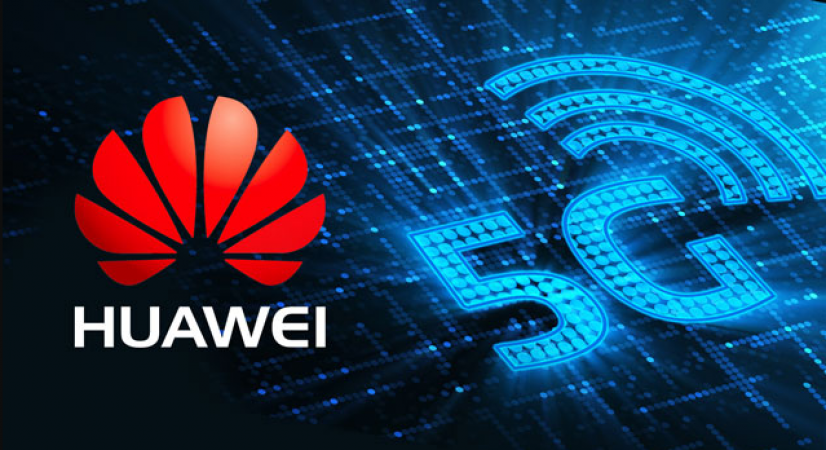
UK: A book by a UK-based journalist has highlighted Washington's efforts to ban China's Huawei Technologies Company from the UK's 5G network.
Richard Kerbaz describes a 2019 "policy disruption mission" by a White House delegation in London, which includes a five-hour meeting with senior officials from GCHQ, one of Britain's spy services, in his book The Secret History of In The Five Eyes.
British intelligence said it can manage the risks of using Huawei's 5G equipment, unlike five of its intelligence partners, Australia, New Zealand and the United States, which already banned the tech giant on national security grounds.
However, a senior British intelligence official present at the meeting said that "the message was, 'We don't want you to do this [accept Huawei], you have no idea how evil China is'."
The meeting with former US National Security Council Asia director Matthew Pottinger, according to the unnamed official, was "five hours of yelling with a ready-made, angry and oddly non-threatening script".
"We tried to offer a policy discussion, but Pottinger didn't care," the official told Kerbaz, a security journalist.
Pottinger, in a letter to The Sunday Times last week, described Kerbage's account as "one-sided and inaccurate", and denied shouting during the meeting.
"It is true that the United Kingdom pressured the United Kingdom to refrain from using Chinese company equipment in British 5G networks." "That's what friends do, especially when there's so much at stake," said Pottinger, who was seen as a driving force behind the Trump administration's tough stance on China.
Along with Secretary of State Mike Pompeo and National Security Adviser John Bolton, he is one of the few former White House officials sanctioned by Beijing after Trump's presidency.
Britain eventually abandoned the use of Huawei in its telecommunications network after US sanctions on the company, leaving the National Cyber Security Center (NCSC) unable to manage security risks.
Despite the divided Conservative Party, former British Prime Minister Boris Johnson allowed the company to build a 5G network a few months ago in January 2020.
Former NCSC chief executive Ciaran Martin told Kerbaz at the Pottinger meeting that the UK was willing to work with the US to counter China's ambitions in the technology sector, but Huawei's involvement in 5G networks was "not the most important thing". . in a huge strategic challenge."
According to Kim Darroch, the British ambassador to the US from 2016 to 2019, the US has been putting pressure on Huawei for years.
Darroch had a meeting from February 2017 to April 2018 with Trump's national security adviser HR McMaster, who took up the issue and explained why the US believes the UK should ban the company, in the book.
During his tenure as ambassador, "Americans had no compelling technical rationale for banning Huawei," Darroch said.
Responding to the book, US study researcher Lu Jiang of the Chinese Academy of Social Sciences said that stopping the growth of companies like Huawei was Washington's top priority.
"The most important goal for America is to stop companies like Huawei from growing," he said.
"If the US lets Huawei get stronger in 5G, it will have no way of catching up." When its largest ally uses Huawei's 5G technology while the US does not, the US falls into a passive state."
However, Lu pointed out that, after the "golden age" of UK-China relations under former British Prime Minister David Cameron, China does not see the issue primarily as a security one.
"The five eyes are not as monolithic as they once were," he said.
According to Zeno Leoni, a lecturer in the Department of Defense Studies at King's College London, the book demonstrated that the US saw China as a challenger, while Britain saw the country as a "systemic competitor" – Britain's post-Brexit A term used in strategy review.
"China, ignoring the Chinese economy, would be very damaging, so the UK can't really do that." "I believe what we are seeing and will see is a strategic ambiguity in which the UK continues to trade as much as it can with China," he said.
"On occasion, the security services of the United States, or possibly the United Kingdom, will mark certain sensitive areas and sensitive issues."
Leoni said alliances and alliances such as the Five Eyes enabled individual countries to collaborate on future technologies and strategic industries - and even break away from China - in order to address the security threats posed by the country. To be.
"That's why it's important to have a united alliance," he said.
Memorizing the September 11 attacks which forever altered the course of history
Unmanned surface ships: the next step in the military conflict between China and the US?
UN watchdog pleased with AUKUS strategy